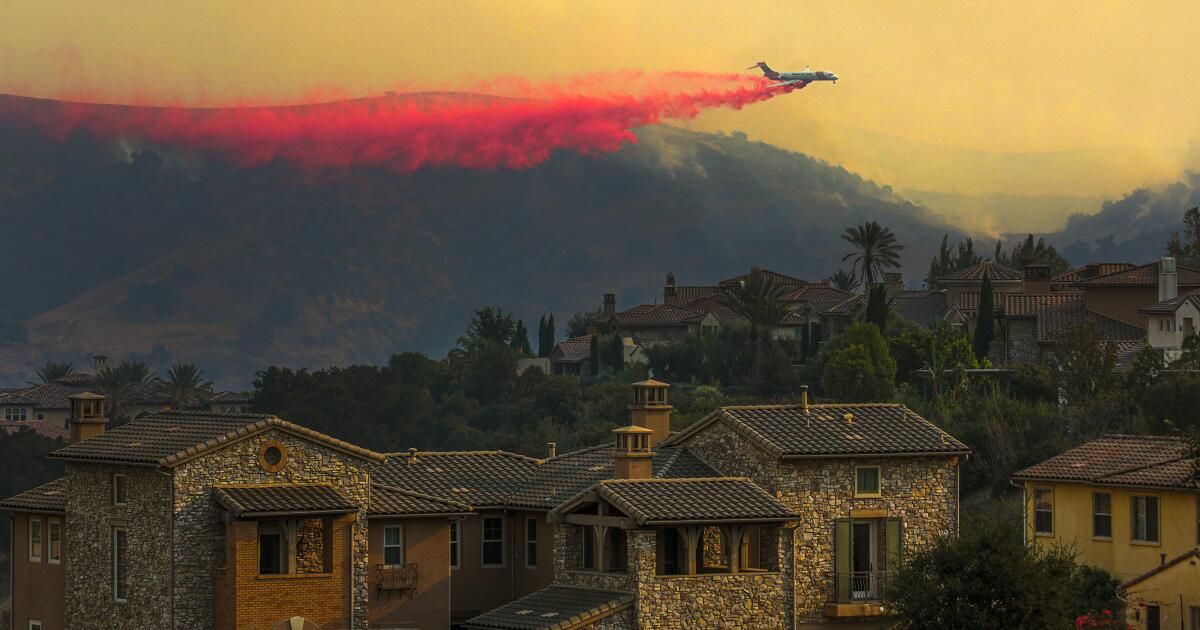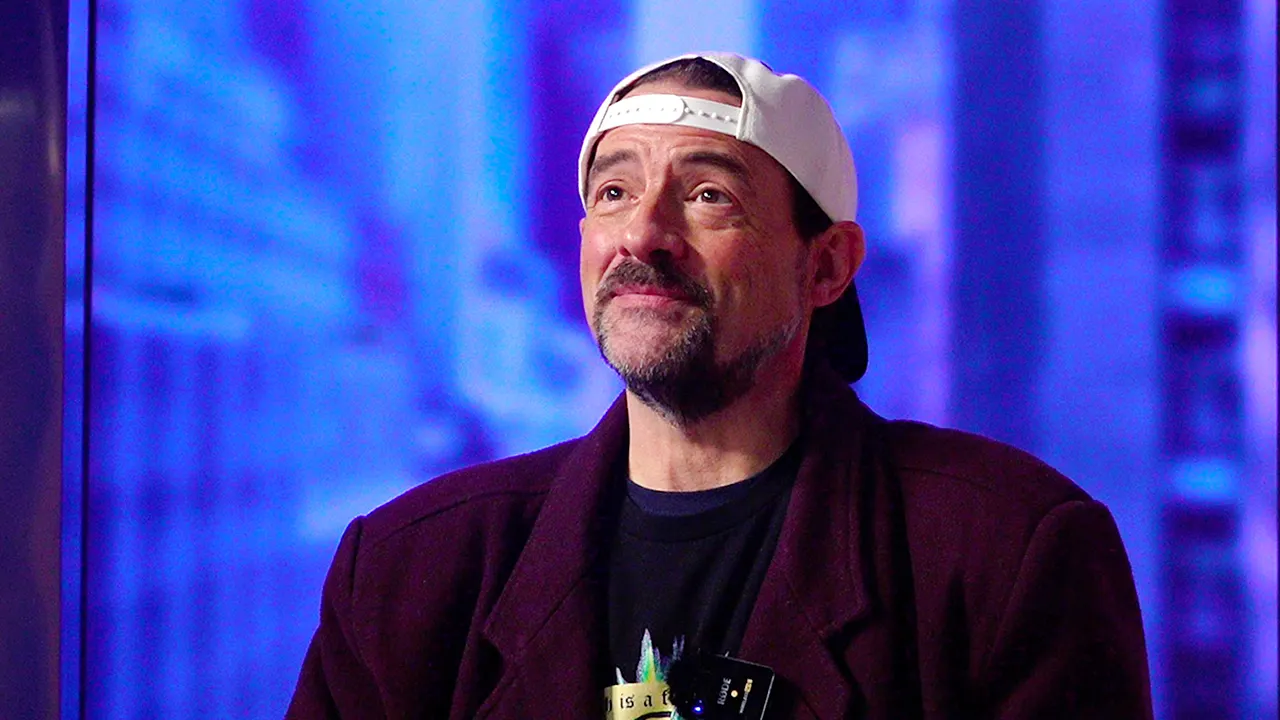Memorial Day weekend means the start of summer vacation and also the start of wildfire season. Many Californians will go “naked.”
Many more will be only partially covered, unable to afford so-called comprehensive protection.
We are talking about home insurance. Hundreds of thousands of Californians have been abandoned by their property insurers because they live in dangerous, fire-prone areas.
“It's one of the biggest challenges facing this state right now,” says new state Senate leader Mike McGuire (D-Healdsburg), whose largely rural district includes North Shore forests and world-class wineries.
In his region, McGuire says, “the issue of insurance is a priority. You can't go to a coffee shop or grocery store without hearing about it. Insurance companies have not renewed thousands and thousands.”
When a Californian loses fire insurance, there are two basic options: go without protection and risk losing what for many people is their most valuable asset: what is known as going naked. Or sign up with an insurer of last resort called FAIR Plan.
Going naked is virtually impossible for mortgage holders because lenders insist their homes be insured. But it's tempting for some people who have paid off their houses, are retired and living on a fixed income without much spare change.
The FAIR Plan was created by the state in the 1960s after the Watts riots and some natural disasters forced insurers to fold. It is financed by insurers and has around 375,000 policyholders.
But a FAIR policy is very expensive and often covers only fire, not household property or liability.
“I don't know how fair it is. It’s so expensive it’s ridiculous,” says Jodi Goodenough, who lost fire insurance on her modern Placer County home in a Sierra forest.
Ironically, her husband, John, owns an insurance agency and they were unable to obtain traditional coverage even though their home was reinforced with a metal roof and stucco siding. “They [insurers] I don’t care,” Jodi says.
Full confession: she's my niece.
In adjacent El Dorado County, in the Sierra foothills, then-Placerville Mayor Michael Saragosa lost his home insurance two years ago despite living near two fire hydrants and a fire station.
You were stuck with a FAIR policy that increased your insurance cost by 40%. “I feel lucky,” he says. “I know people who pay 100% more. “Four out of five City Council members are now on the FAIR Plan.”
Political connections and insider knowledge about insurance don't matter.
Santa Rosa Fire Department workers battle the Shady Fire as it moves toward homes in Santa Rosa in 2020.
(Kent Nishimura / Los Angeles Times)
Former state insurance commissioner Steve Poizner, who lives in a wooded area of Silicon Valley in Santa Clara County, was fired from his insurer two years ago.
“I am a former California insurance commissioner. If it happened to me, it can happen to you,” Poizner wrote in an op-ed for the Los Angeles Times.
Poizner connected with an out-of-state airline. “It was half the coverage and double the price,” he told me recently. He finally found a California insurer willing to do it.
“But now they just notified me that they are not going to renew,” Poizner added. “This is a broken system.”
It's not just broken in California. It is a national crisis. Climate change is the culprit of the consensus because it is attributed to the escalation of forest fires, floods, hurricanes, tornadoes…
The New York Times reported this month that insurers lost money on homeowners coverage in 18 states last year.
“The result,” he wrote, “is that insurance companies are raising premiums by as much as 50% or more, cutting coverage, or abandoning entire states.”
Denni Ritter, lobbyist for the American Properties Casualty Insurance Association in the western states, says: “What is unique to California is our regulatory system under Proposition 103. Insurers have not had the ability to adjust rates to absorb the prices… .
“In California, for every dollar of premiums, insurers paid out $1.13 in claims between 2012 and 2022. California’s situation is unsustainable.”
Proposition 103 was a citizen initiative approved by voters in 1988. It cut rates by 20% for home, fire, auto and many types of insurance. And it created an elected insurance commissioner who must approve rate increases before they can take effect.
But the insurance industry and current Commissioner Ricardo Lara insist that approvals are taking too long (up to a year or more). Proposition 103 promised 60 days. Lara points to that.
“We are clearly operating under 20th century regulations when we are in the 21st century,” Lara says.
There are many signs.
“The problem is that insurance companies are greedy and don't want to insure people without getting as much money out of them as possible,” says Jamie Court, president of Consumer Watchdog, which wrote Proposition 103.
“Our plan is to require insurance companies to insure everyone who hardens their home. And it should be reasonably priced.”
Something like that makes sense.
McGuire, who is considering a run for insurance commissioner, promises that this year's legislation will provide incentives for homeowners to shore up their homes and make them safer from fire. There should be discounts for insurers and perhaps tax credits for the government, he says.
Insurers want to be allowed to project their future obligations when setting premium rates. Other states allow it. It sounds logical.
And they are asking to be reimbursed through premiums for the cost of insuring against claims resulting from natural disasters.
Lara promises new regulations by the end of the year. That seems too long. He blames the slowness on Proposition 103 rules.
And Gov. Gavin Newsom is pushing for legislation, at least verbally. So far there is little action.
“We have one more fire season ahead of us. “This will be the last summer of risk before we have a stable insurance market,” predicts Sen. Bill Dodd (D-Napa), whose wine district was devastated by fire and has been active in fire prevention legislation.
“Now we have many cases of people going naked without any insurance. Much more than anyone knows.”
There is no good excuse not to offer them affordable coverage.












